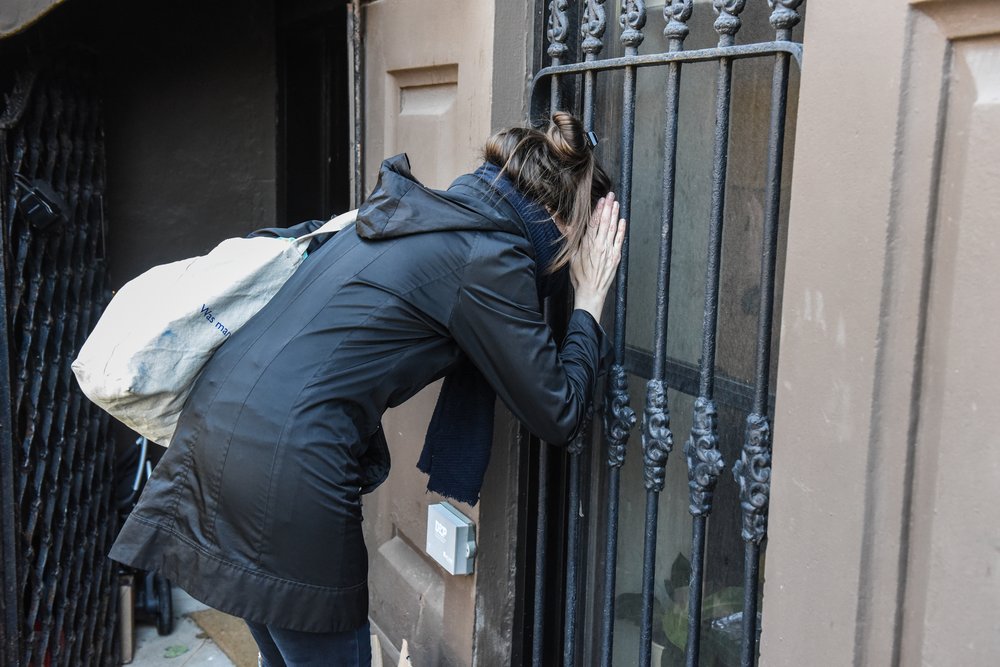Looking into a basement apartment? NYC proposes new safety rules.
July 21, 2025, 6:31 a.m.
Experts say that without proper implementation, new rules for basement and cellar units could push vulnerable tenants and landlords further underground.

In New York City, the basement floors of most buildings pose a conundrum for public officials.
Tens of thousands, if not hundreds of thousands, of New Yorkers live in basement and cellar apartments, according to research by universities and nonprofits. And yet, many of these units are illegal, largely because they pose risks to tenants during fires or floods. In 2021, when the remnants of Hurricane Ida dumped more than 8 inches of rain onto some parts of New York City, 11 people died in flooded basement apartments.
At the same time, the city is in the grips of a housing crisis, and outlawing underground dwellings might only exacerbate the problem. That's why city officials proposed new rules for basement units late last week as part of an ongoing effort to keep residents safe without placing a heavy burden on homeowners to make their buildings compliant.
If approved, the rules for what the city calls "ancillary dwelling units" would introduce an array of safety regulations, including a prohibition on basement and cellar apartments in flood-prone areas. Owners would also have to live in the buildings where the apartments are located. New regulations are also being proposed for other types of units, including attics and backyard cottages.
The city defines basement units as dwellings that are more than halfway above curb level and cellar units as dwellings that are more than halfway below curb level. Under the proposed rules, any cellar unit would have to be equipped with two exits and an automatic sprinkler system. Yards or any other adjacent open spaces must be at least 6 inches lower than any window sills in a unit.
A joint statement from the city’s Department of Buildings and Department of Housing Prevention and Development reflected the balancing act of making these units safer while preserving this critical segment of the city’s housing supply.
"Our city's affordability and safety must be our north star; legalizing and making ancillary units safe does both," Deputy Mayor for Operations Jeff Roth said in a statement.
The tragedy of Hurricane Ida was a wake-up call for the city to step up enforcement without evicting residents and taking housing away from communities. And a series of state and local legislation passed in 2024 enabled the city’s housing agencies to craft new regulations surrounding these units.
“Basement and cellar apartments are not unfamiliar to many people,” said Howard Slatkin, executive director of the New York Citizens Housing and Planning Council. “They just haven’t had a home in our building codes and legal system.”
Annetta Seecharran is the executive director of Chhaya Community Development Corporation, a nonprofit organization focused on housing and economic justice for South Asian and Indo-Caribbean communities. She said the estimates are likely to be undercounts.
“So many people live in the shadows,” she said. “By definition, they're in a vulnerable position, so it’s hard to track them.”
If the city inspects a property with an unauthorized basement or cellar unit, she said, the homeowner could face $10,000 to $30,000 in fines, and the tenant could be evicted. The city’s current enforcement regime, she said, exacerbates both homelessness and the housing shortage in the city. But letting them be could endanger tenants.
Housing experts and advocates hope the newly proposed rules will provide a pathway for homeowners and tenants to legalize these living arrangements.
“The city has basically allowed what we estimate is tens of thousands of units to not be subject to the same kinds of modern housing safety protections that we expect in the city,” said Sylvia Morse, a senior program manager at the Pratt Center for Community Development.
The Pratt Center helped launch the Basement Apartments Safe for Everyone campaign, which led to a pilot program that converts basement units in East New York. The program partners with local community-based organizations to help homeowners apply for financial assistance from the city so they can comply with the rules for basement dwellings. It's led by the nonprofit Cypress Hills Local Development Corporation.
The city will provide low- or no-interest loans as well as grants to homeowners who meet income requirements, according to Matthew Rauschenback, a spokesperson for the city Housing Preservation and Development agency. It will also partner with the nonprofit Restored Homes HDFC to provide construction resources for homeowners and create an online hub for homeowners looking to build or modify basement and cellar units.
Slatkin, of the New York Citizens Housing and Planning Council, said the affordability of adhering to new requirements is a central concern for advocates. The rules were designed to draw people out from the shadows, but if they’re too onerous, New Yorkers may continue living in unsafe, unregistered homes.
“If you have concerns about the safety of spaces, paradoxically, enforcing against them just drives people further underground,” he said. “It's not that you can't enforce, but you have to have a way for people to make reasonable, affordable changes.”
The Department of Buildings will hold a public hearing on the rules on Aug. 18.
An earlier version of this story misstated Sylvia Morse's role in the Basement Apartments Safe for Everyone campaign. She helped launch the pilot program.
NY's basement legalization plan 'inexplicably' misses parts of city that need it most 2 years after Hurricane Ida deaths, are NYC's basement apartments any safer?